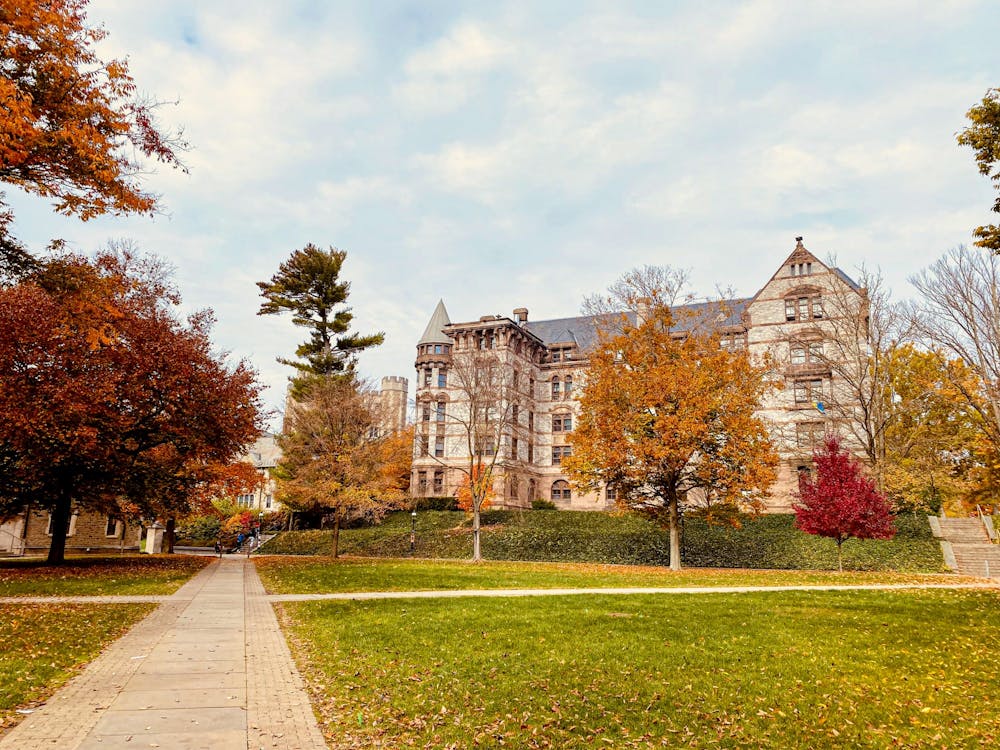On April 22, the Daily Princetonian released the results of its highly anticipated annual Senior Survey. Among a wide array of data points it collected, the survey asked 571 graduating seniors (approximately 44 percent of the Class of 2023) to answer questions about their political views — quizzing them on topics ranging from their vote in the 2020 U.S. presidential election to how their stances on issues have evolved over the course of their undergraduate education.
The survey’s results are alarming and are a shameful reflection on the state of civil discourse and freedom of expression at Princeton. Two data points stood out to me: first, that 64.3 percent of “very conservative” and 55.2 percent of “somewhat conservative” students expressed significant discomfort with openly sharing their political views on campus, versus just 3.2 percent of self-identified “leftist” students and 5.2 percent of “very liberal” students; and second, that 44.5 percent of students described their views as shifting further to the left over their four-years at Princeton, versus just 17 percent who reported their views moving toward the right.
It’s particularly ironic that the survey’s findings were unveiled during the same month that President Christopher Eisgruber ’83 published an audacious column in the Princeton Alumni Weekly, in which he claimed that “we have civil discourse on this campus” and that “we should push back hard against the distorted accounts of those who say otherwise.”
Does President Eisgruber believe that a campus where the only students who feel largely uncomfortable openly sharing their views come from one political persuasion is a campus where civil discourse operates at a functionally healthy level? Does he believe that the University is living up to its truth-seeking mission when its students — already overwhelmingly of one political viewpoint — are being pushed even further in that direction as the result of an insufferable campus-wide groupthink that renders dissenters fearful of publicly voicing and defending their views? I, for one, think it’s patronizing for President Eisgruber to continue to (sophistically) insist that Princeton’s campus environment is a positive model for civil discourse in any way.
This year’s Senior Survey simply captures a snapshot of Princeton’s marred free speech culture. Those looking for the cause of the decay can find some answers in the many institutional failures that have taken place during my three years here: an accomplished professor’s highly politicized firing; a prominent dean’s flagrant disregard for institutional neutrality in order to preach her hyper-partisan views on a controversial jury trial; freshman orientation programming explicitly condemning real freedom of speech; and dangerous bias-reporting systems that encourage self-censorship and speech policing. Why have anti-speech attitudes taken hold here? The embarrassing behavior of our administrators makes the reason painfully clear.
If, as the Senior Survey’s data suggests, Princeton is fostering an environment that facilitates the mere training of ideologues and excludes those with unpopular opinions from full participation in campus discourse, then the University is failing at its most important task: to form its students in the noble tradition of truth-seeking, dispassionate scholarship, liberal inquiry, and the pursuit of knowledge for its own sake.
For those of us who are members of this community of scholars, the Senior Survey’s egregious findings should be our shame. We have a moral duty, in accordance with our various stations at the university, to rectify these disturbing trends.
For students, this means sticking up for the unpopular position’s right to be expressed — in class, on the sports field, in club meetings, at meals, and during social gatherings. For faculty, administrators, and others with institutional authority, this means using your position to advocate for a university that vigorously promotes a culture of unrestrained scholarly inquiry, freedom of thought and expression, and real robust discourse. This can be pursued in various ways — from simple actions such as including a free speech statement on your syllabus to bolder and more courageous moves, like speaking up against dogmatizing “trainings” and the agendas of institutional ideologues when you encounter them.

For those of us who do not agree with President Eisgruber’s out-of-touch impression of a campus where healthy civil discourse is alive and well, the Senior Survey’s shameful results should be a distressing wake-up call (as if we needed another one). For the sake of our university’s continued existence as an intellectually serious, truth-seeking place, the repressive and illiberal qualities of our campus climate must be done away with. For good.
Matthew Wilson is a junior in the Department of Politics. He can be reached at mxwilson@princeton.edu.









